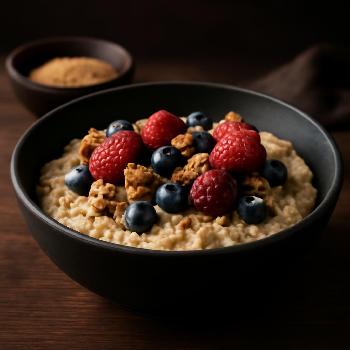Cooking Tips > Ingredients & Substitutes > Substitute Ingredients > How can I substitute sugar with natural sweeteners?
How can I substitute sugar with natural sweeteners?
Learn how to replace refined sugar with natural alternatives in your recipes. This guide covers various natural sweeteners, their properties, and how to use them effectively while baking and cooking.

Understanding Natural Sweeteners
Many natural sweeteners can be used as alternatives to refined sugar. They often offer different flavor profiles and nutritional benefits. Popular options include honey, maple syrup, agave nectar, stevia, and dates.
Honey
Honey is a natural sweetener produced by bees. It has a distinctive flavor and contains antioxidants. When substituting honey for sugar, use about 1/2 to 3/4 cup of honey for every 1 cup of sugar. Reduce the liquid in the recipe by about 1/4 cup, as honey is more liquid than sugar. Also, consider lowering the oven temperature by 25°F (15°C) to prevent over-browning.
Maple Syrup
Maple syrup is derived from the sap of maple trees. It has a rich, caramel-like flavor. Use the same ratio as honey – 1/2 to 3/4 cup of maple syrup for every 1 cup of sugar. Adjust the liquid content accordingly, reducing it by 1/4 cup. Maple syrup works well in recipes where its flavor complements the other ingredients.
Agave Nectar
Agave nectar has a mild flavor and a high fructose content. It's sweeter than sugar, so use less. Typically, you can substitute 1/2 cup of agave nectar for 1 cup of sugar. Reduce the liquid in the recipe by 1/3 cup. Be aware that agave nectar can cause baked goods to brown more quickly.
Stevia
Stevia is a natural sweetener derived from the stevia plant. It's calorie-free and much sweeter than sugar. When using stevia, start with a very small amount, as it can have a slightly bitter aftertaste. Follow the manufacturer's instructions for the correct conversion ratio, as it varies between different stevia products. Stevia often works best in combination with other sweeteners to improve the overall flavor profile.
Dates
Dates, often used as date paste or date syrup, offer a naturally sweet and nutritious option. To make date paste, soak pitted dates in hot water until softened, then blend until smooth. You can use date paste as a 1:1 substitute for sugar. Dates add moisture and a caramel-like flavor to baked goods.
Considerations When Substituting
FAQ
-
Will using natural sweeteners change the texture of my baked goods?
Yes, using natural sweeteners can affect the texture. Some sweeteners, like honey and maple syrup, add moisture, resulting in a softer texture. Others, like stevia, may not provide the same structure as sugar, potentially leading to a denser result. -
Can I substitute sugar with natural sweeteners in all recipes?
While you can substitute sugar with natural sweeteners in many recipes, some may require adjustments to ensure the desired outcome. Recipes that rely heavily on sugar for structure, such as meringues or certain cakes, may be more challenging to adapt. -
Are natural sweeteners healthier than refined sugar?
Natural sweeteners often contain some nutrients and antioxidants that refined sugar lacks. However, they still affect blood sugar levels and should be consumed in moderation. It is important to consider the overall nutritional profile and portion size.
